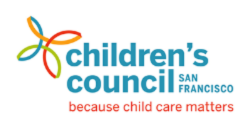Topics
Choosing Child CareFamilies' RightsFamily & Community EngagementFinancial AssistanceLicensing & SafetyParenting & Child DevelopmentProvider ResourcesResource & ReferralSpecial NeedsIn the United States, young children are expelled and suspended from child care programs at higher rates than K-12 students. Often, the provider will say the reason is challenging behaviors.
This affects some groups of children more than others. For example:
- children are more likely to be expelled from private programs than programs with government funding,
- boys are more likely to expelled than girls, and
- African-American boys are twice as likely to be expelled than other races.
Definitions of Expulsion and Suspension
- Expulsion: The child is not allowed to attend the child care program at all.
- Out-of-school suspension: the child is not allowed to attend the program for a certain number of hours in a day or a certain number of days.
- In-school suspension: The child is sent out of the classroom (to the office or another classroom) for more than 25 percent of the day.
Why expulsion and suspension are problems
Children need consistency from their caregivers. When a provider asks a child to leave a program, they could feel shame and guilt. They miss their friends, teachers and favorite toys. They can bring these feelings to a new child care program which could lead to another expulsion or suspension.
Resources for parents facing a child’s expulsion or suspension
- There are many resources for parents who have questions or concerns about their child’s development or behaviors.
- There are many resources for parents who think their child might have special needs.
- Parents can contact their local child care resource and referral agency to discuss their child care needs.
Resources for child care providers to help reduce expulsion and suspension
Resources from the California Department of Education
Preventing Expulsions and Suspensions in Early Childhood Settings,
This website offers an interactive guide for child care program leaders. The guide identifies resources for supporting social-emotional development, reducing challenging behaviors, and recognizing the role that culture and biases play in expulsions and suspensions, and more.
CA Collaborative on Social & Emotional Foundations for Early Learning
The Collaborative offers training and resources on the Teaching Pyramid. The Teaching Pyramid focuses on the social and emotional development of all children, preventing challenging behaviors, and addressing a child’s challenging behaviors through intensive interventions.
The California Inclusion and Behavior Consultation (CIBC) Network
This Network includes experts on inclusion (including all children in child care programs) and working with children with challenging behaviors. They offer on-site consultation to child care programs that are funded by the California Department of Education. They help staff to respond effectively to children with special needs or challenging behaviors.
The California Preschool Instructional Network (CPIN)
CPIN provides professional development for preschool administrators and teachers.
Inclusion Opportunities is one module focused on inclusion of all children in preschool programs. There are also resources for talking with parents about a child who might have a developmental delay, disability, or behavior problems. Resources from the Federal Government
Policy Statement on Expulsions and Suspension Policies in Early Childhood Settings
This purpose of this policy statement from the federal government is to help states and child care providers reduce suspensions and expulsions. General recommendations for child care providers include:
- Develop and clearly communicate preventive guidance and discipline practices.
- Develop and clearly communicate expulsion, and suspension policies.
- Provide technical assistance to the workforce to prevent expulsion and suspensions.
- Set goals to reduce expulsions and suspensions and use data to assess progress.
- Use available resources to strengthen family partnerships.
Was this article helpful?
Similar Resources
Families’ Rights in Choosing Child Care
In California, parents have the right to make the best child care choices for their family. Parents have many options:...Child Care Resource and Referral Agencies (CCR&Rs)
What is a CCR&R? Child care resource and referral agencies (CCR&Rs) serve families, child care providers and the...Licensing and Monitoring for Child Care Facilities in California
Community Care Licensing Information The Department of Social Services, Community Care Licensing (CCL) licenses and moni...Log into your account
Don't have an account? Sign up
Sign up to save your own provider lists
Already have an account? Log in
Create an account with Email Address | Phone Number

